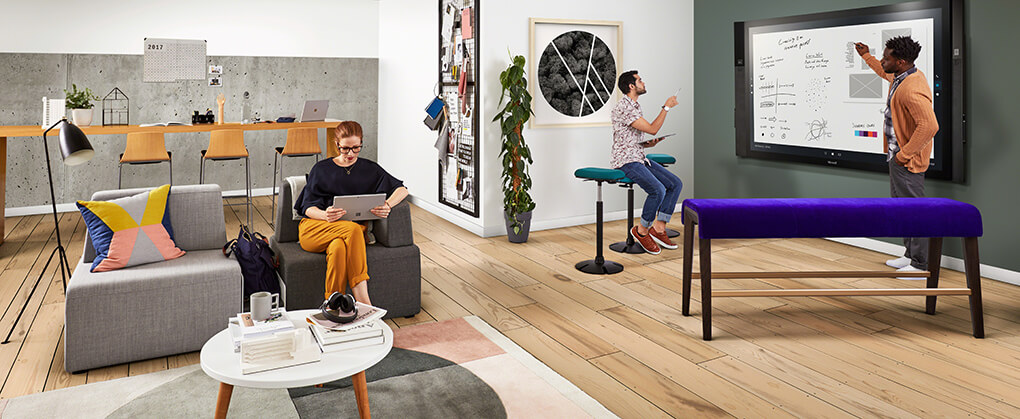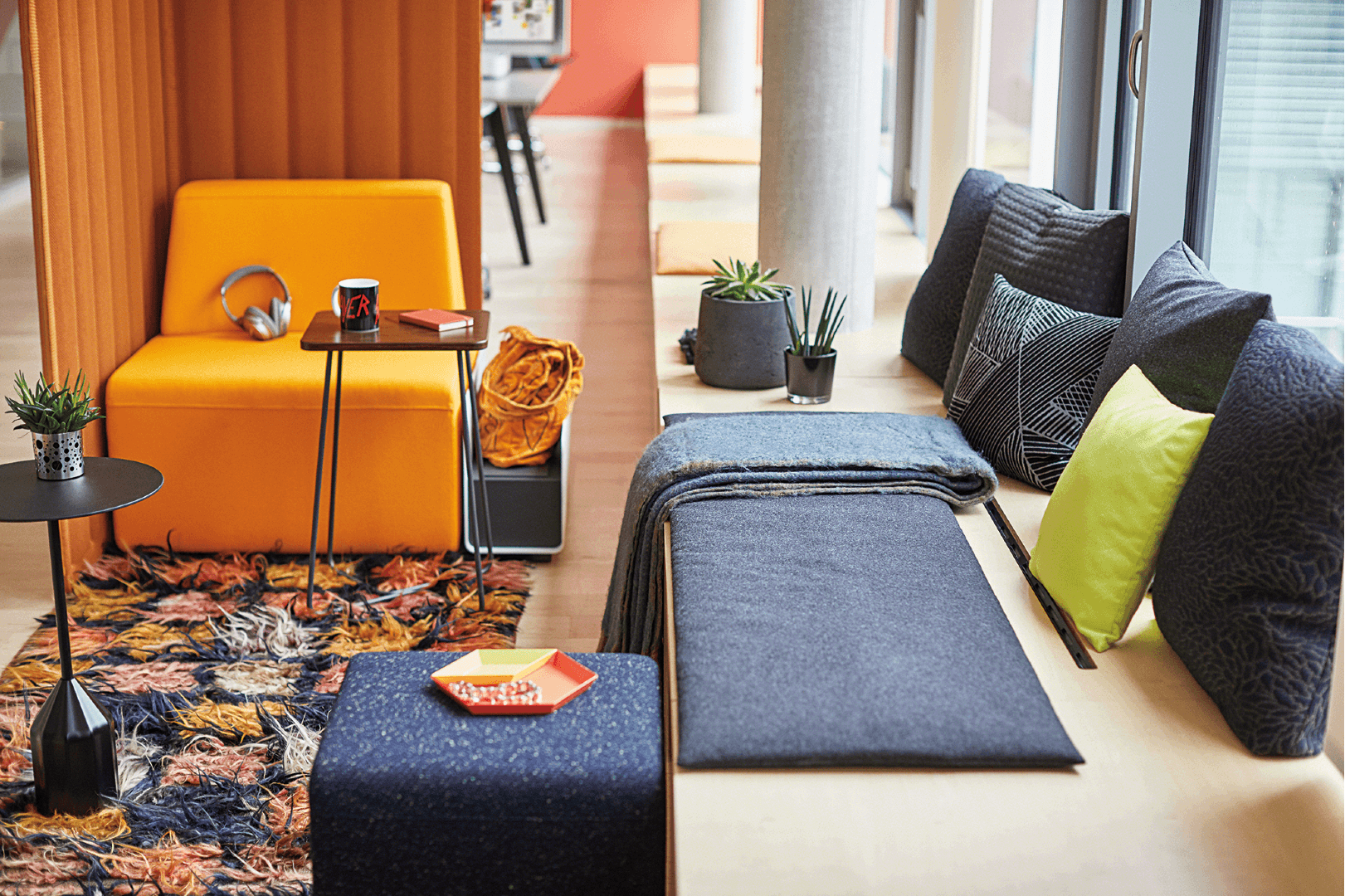The companies that are thriving have learned teamwork— and a culture that supports it—is the only way to make innovation happen.
But teams, faced with an unprecedented level of complexity and an intense need for speed, have changed radically in just a few years.
They have quickly morphed from the hierarchy-laden culture and practices that shaped work in the past, to become modern tribes: tight-knit units that behave in fundamentally different ways than they did even five years ago. These tribes are a work family and their hallmark is hyper-collaboration, working interdependently in rapid cycles—instant messages and sticky notes flying in their wake.
These modern tribes embrace practices like agile and design thinking to try to stay ahead of the competition. Previously the domain of only IT or creative teams, methods like agile and design thinking have gone mainstream, and are being adopted and adapted to help teams learn faster, mitigate risks and get things done. These teams are embracing rituals such as daily standups, sprints, brainstorms and workshops to help them stay more closely connected to their customers, so they can develop solutions with a higher chance of hitting the mark.

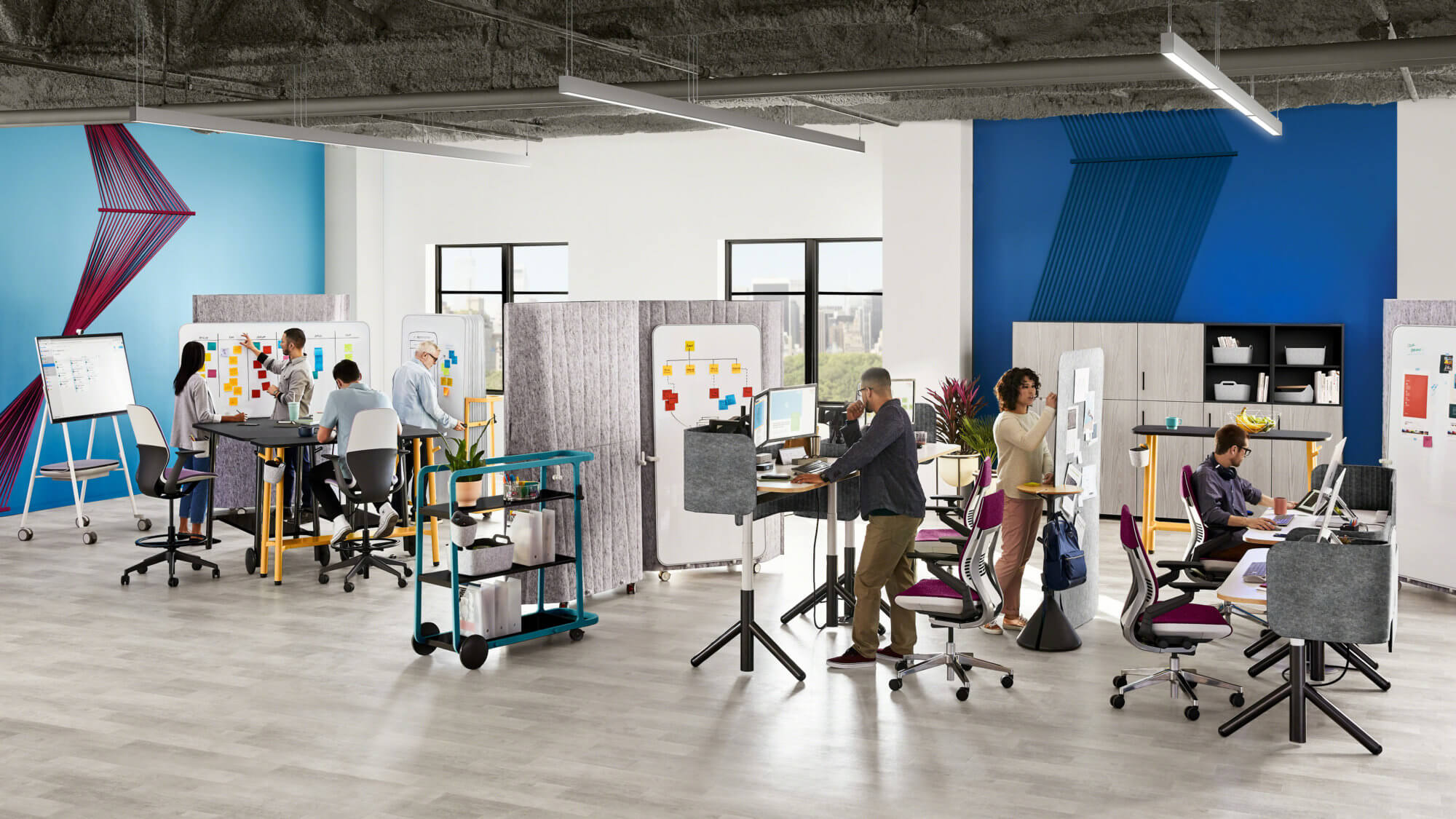
It’s all about control
Once teams start working in such fundamentally different ways, they quickly realize typical work environments created for more linear, individual processes simply don’t work anymore.
“Teams need flexibility to change their day-to-day activities. Particularly, teams using agile and design thinking practices need to be able to change how they work over time. This shift in how teams are working required us to look at solutions through a new lens,” says Bill Bennie, Steelcase design director.

Bennie was part of a multi-disciplinary team of Steelcase designers, researchers, engineers and project managers that went out to observe these creative and high-tech teams in the U.S., Europe and the Middle East starting in 2017. They talked to people who had grown frustrated and discouraged trying to muddle through with spaces and technology that didn’t support their needs. They learned the most from renegades unwilling to put up with the status quo who began hacking their existing spaces.
These hacks, along with a body of primary and secondary research about team-based work, inspired designers to envision some radically-different solutions.
Their idea: Create an interconnected system that supports the activities of the larger team as well as individual work. “Instead of one new thing, we ended up creating pieces that all move and work together to let people reconfigure their space in a matter of minutes. The pieces work well on their own, but just like a team, they work better together,” says Bennie.
Embracing agile concepts, they enlisted Steelcase IT teams to test new ideas in a prototype space. They collaborated, offering fast, cyclical feedback to allow for continuous improvements on initial models.
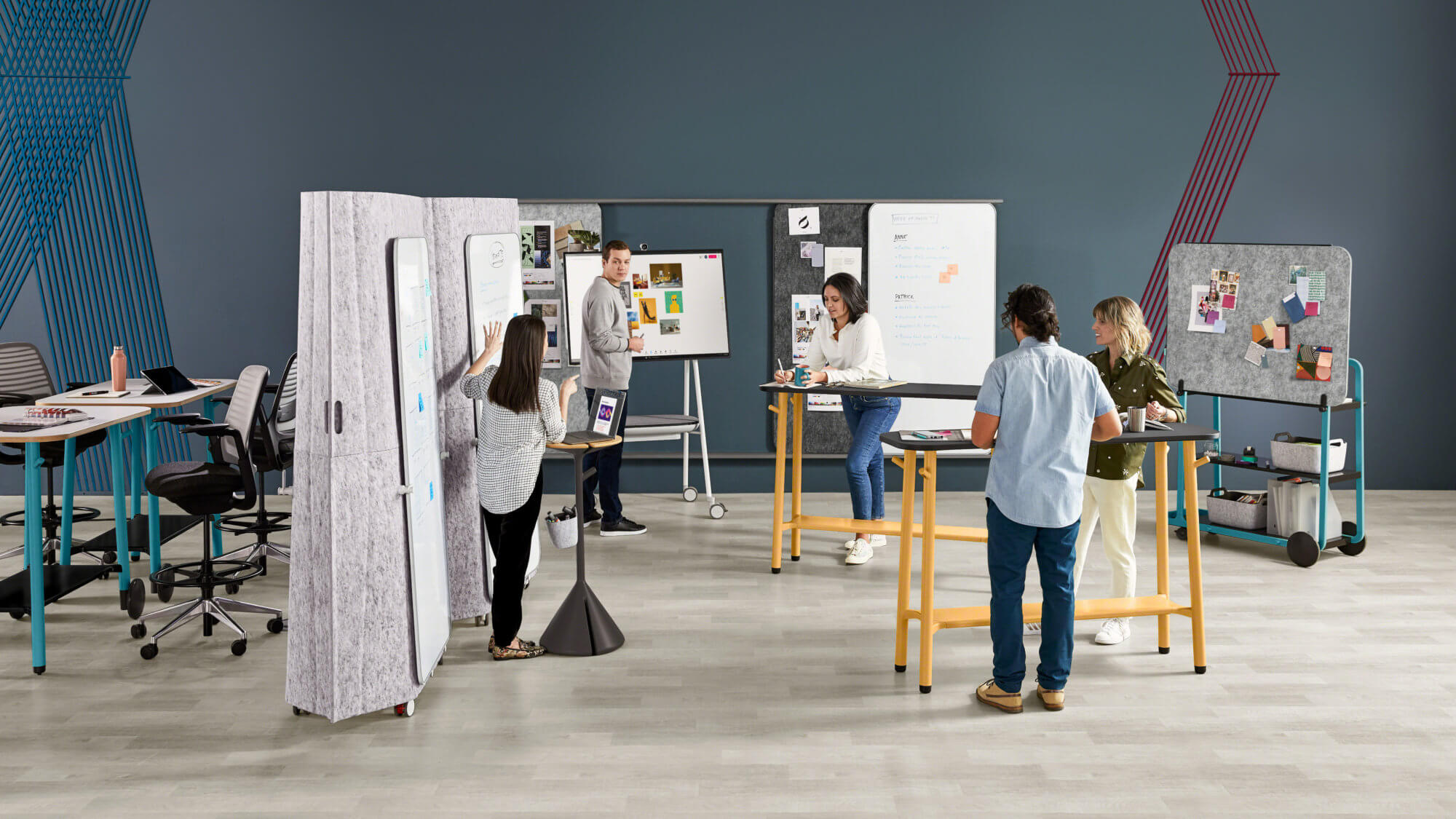

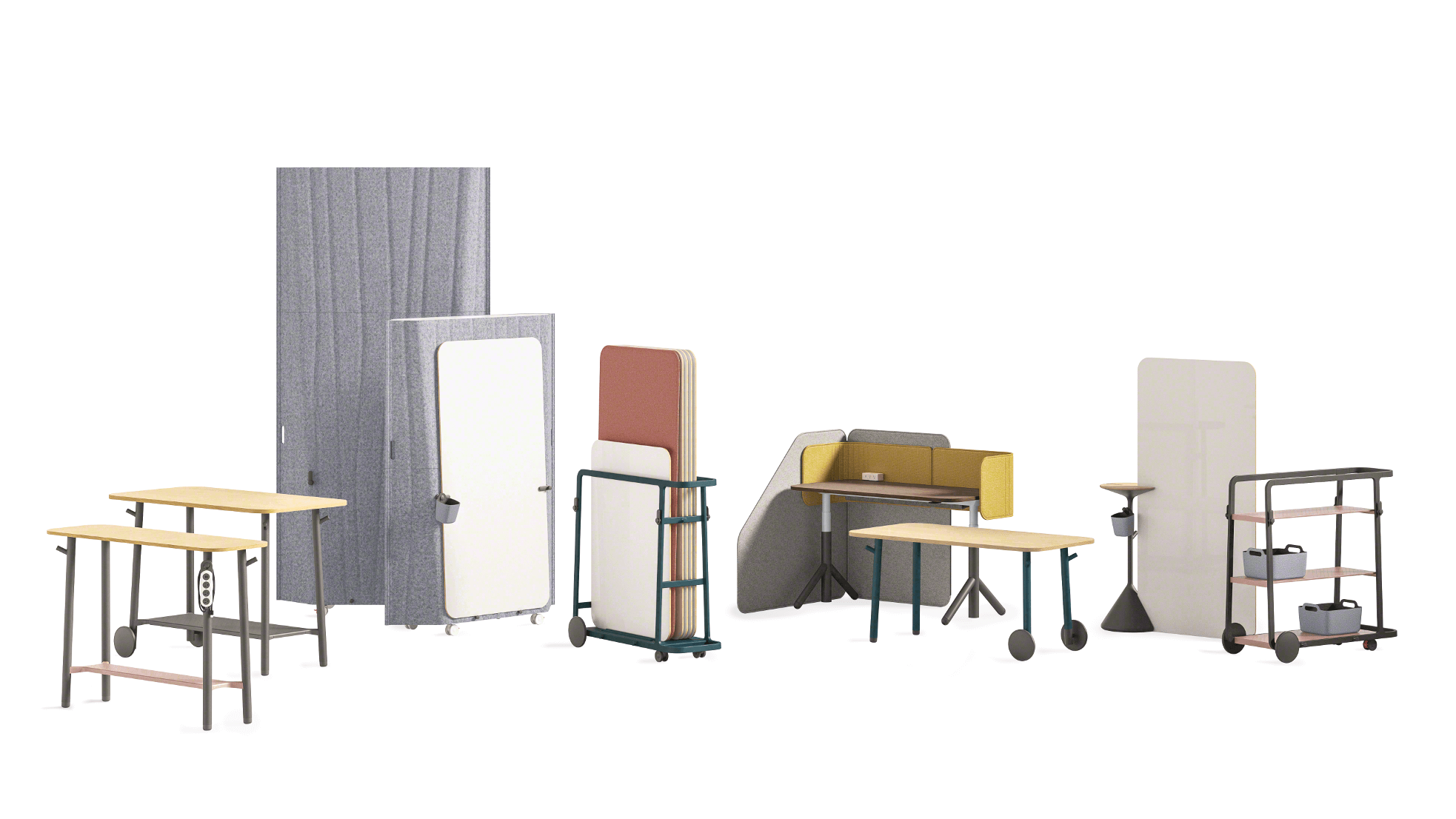
The result became the Steelcase Flex Collection — aptly named because the idea is all about flexibility — movable desks, tables, markerboards, carts, screens and accessories that can be rearranged on demand by anyone to create environments that both teams and individuals need to do their best work. The collection is designed to make it easy to shift between different activities from a brain-storm to a workshop, or from a daily stand-up to a sprint review.
Whether on wheels, rollers or glides, Steelcase Flex is designed to move easily and gives teams permission to take control and make a space their own. Details, like the board cart that holds eight whiteboards and pegs on the tables to hang a backpack or other accessories, were designed with the needs of the team — and the individuals who make it up — in mind.
To know everything about tomorrow’s world of work, we strongly recommend the ultra-documented reading, the 306° magazine of our partner Steelcase!
Discover more information on the Flex Collection product page!



